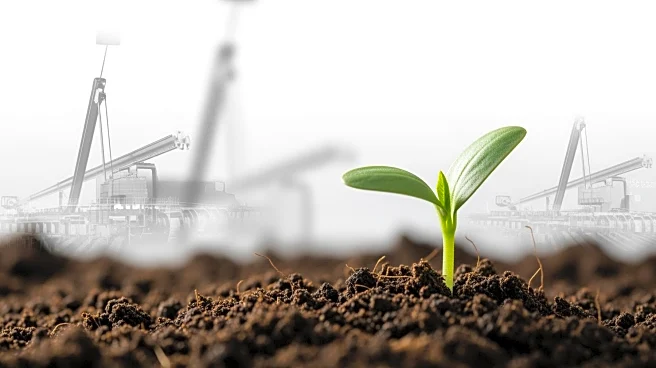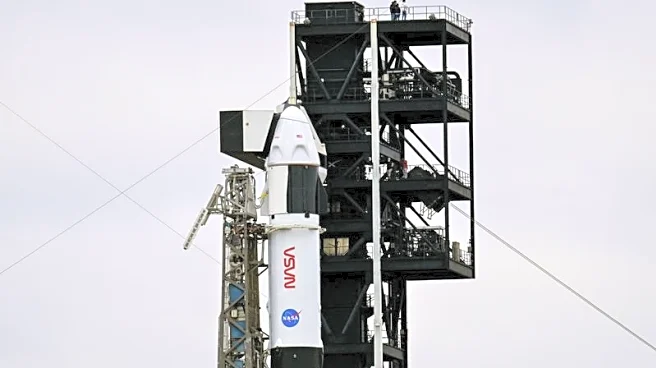Rapid Read • 8 min read
The United Nations has released its Sustainable Development Goals Report 2025, highlighting the slow progress towards achieving the 17 Sustainable Development Goals (SDGs) by 2030. Despite improvements in global health and social protection, nearly half of the targets are not advancing sufficiently, with some even regressing. The report underscores the challenges posed by the COVID-19 pandemic, geopolitical tensions, and environmental crises, which have hindered efforts to meet the SDGs. As the deadline approaches, experts are considering post-2030 plans, emphasizing the need for transdisciplinary partnerships and multilateral cooperation to address poverty, inequality, and climate change.
AD
The slow progress on the SDGs has significant implications for global development, affecting efforts to combat poverty, inequality, and environmental degradation. The inability to meet these goals could exacerbate existing challenges, such as climate change and biodiversity loss, impacting vulnerable populations worldwide. The report calls for intensified efforts and international cooperation to address these issues, highlighting the urgency of sustainable development initiatives. The focus on post-2030 planning reflects the need for long-term strategies to ensure a prosperous and equitable future.
The UN is working on initiatives like the Pact for the Future and the Sevilla Commitment to strengthen global financing and cooperation for sustainable development beyond 2030. These efforts aim to build a framework for continued progress, despite geopolitical challenges and environmental crises. The success of these initiatives will depend on the ability to forge consensus and collaboration among nations, addressing the root causes of poverty and inequality while promoting sustainable practices.
The report highlights the ethical and cultural dimensions of sustainable development, emphasizing the need for inclusive and equitable solutions. Addressing poverty and inequality requires not only economic measures but also social and cultural shifts to empower communities and promote resilience. The focus on transdisciplinary partnerships underscores the importance of integrating diverse perspectives and expertise to tackle complex global challenges.
AD
More Stories You Might Enjoy












